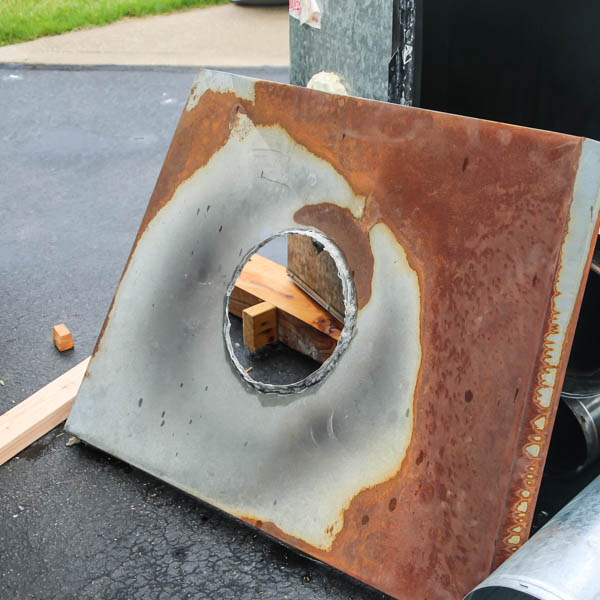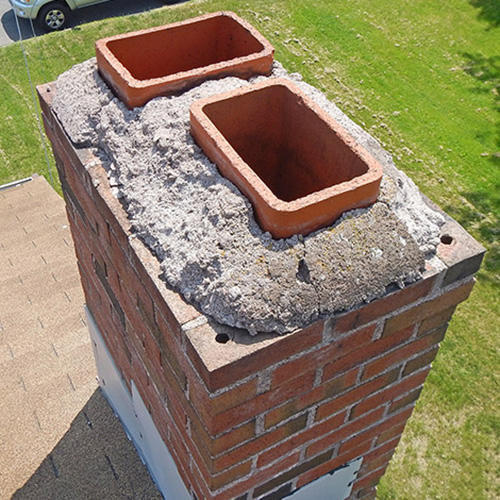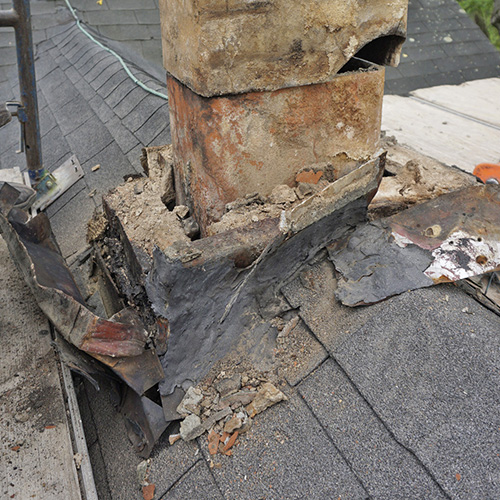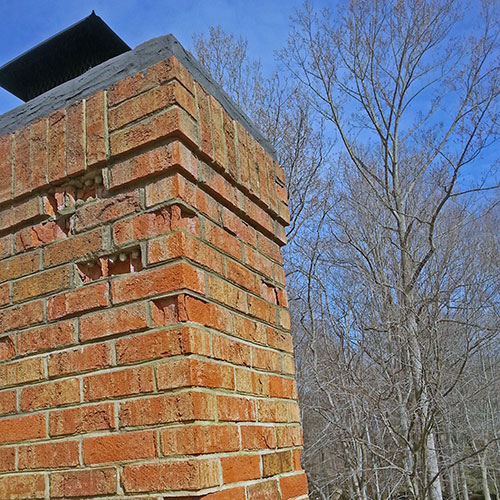We Repair Chimney Leaks
You will see our colorfully marked trucks services customers in the Milwaukee area including towns like Kenosha WI, Port Washington WI, Janesville WI, Fort Atkinson WI, Jefferson WI, Union Grove WI, and West Bend WI.
Chimney leaks are common; in fact, there is no greater enemy to a chimney than moisture. Ideally, a chimney and its connection to your house are sealed and watertight. Unfortunately, there are numerous situations which cause moisture to enter the chimney system and potentially cause damage not only to the chimney and fireplace but also to other parts of your home. One of the top reasons to have an annual chimney inspection is to make sure that there hasn’t been deterioration which involves a leak of some kind. The longer a moisture problem goes on undetected, the more expensive the needed repairs will likely be.
Common Causes of Chimney Leaks:

Rainwater in chimney flue
Chimney caps and rain shrouds are accessories, but they serve an essential function. A chimney cap prevents rain from falling down into the chimney opening or flue. The types of damage caused by rain pouring into the flue include a rusted firebox, rusted damper, and a damaged flue lining. The moisture can also cause strong odors to emit from the fireplace, especially during warm months. The simple solution to rain in the chimney is to have a chimney cap or rain shroud installed, whichever is appropriate for your heating unit. Installing chimney tops is one of our specialties. If you don’t have a chimney cover, don’t wait any longer to contact us. Not only will this important accessory keep out moisture, it will also provide spark guard protection and keep critters out of your chimney.

A damaged chimney crown
Located at the very top of the chimney where the masonry ends, the chimney crown or. covers the top of the masonry and forms a waterproof seal all the way around the flue. The crown is made with cement, and cracks can form due to shifting of the structure, freezing and thawing cycles in wintertime, or simply from age. A cracked chimney crown causes several problems, such as allowing water to leak between the masonry and the flue; allowing moisture to permeate the masonry, which causes deterioration and breakage; and allowing moisture to leak into other parts of the home. Even small cracks in the crown can cause costly damage. Hairline cracks can sometimes be sealed effectively enough that water won’t get in.

Flashing that is not watertight
Flashing may not be watertight due to faulty installation or deterioration. Flashing is comprised of metal pieces used to form a watertight connection between the chimney and the roof. When the flashing deteriorates or has been incorrectly installed, water can get in and cause wood rot, roof damage, attic damage, and even ceiling damage. Besides getting annual chimney inspections, we recommend regularly checking your attic for signs of leakage around the chimney area, since flashing leaks are a common problem.

Water in the chimney masonry
Whereas bricks, stone, and cement masonry can last about a century if protected from moisture, mortar only lasts about 25 years at the most. When the mortar deteriorates, it needs to be replaced; otherwise, water gets into the masonry and causes big problems. The face of the masonry can flake or pop off because of the moisture inside. If bricks or stone begin to crack and break, the entire chimney can start leaning or could collapse. Sometimes when moisture leaks into the masonry, white staining called “efflorescence” occurs and gives you a visible clue that your chimney has a moisture problem. Not all masonry contains the salt which causes staining and it could require closer inspection to determine if the bricks and mortar are effectively repelling water or if deterioration has occurred. If the moisture problem isn’t dealt with, a complete rebuild of a chimney may become necessary.
There are some “remedies” which do more harm than good, such as waterproofing chimneys with products that end up sealing moisture inside the masonry. Our chimney experts are licensed professionals who are familiar with all of the best and most effective techniques for repairing, rebuilding, and protecting masonry.
